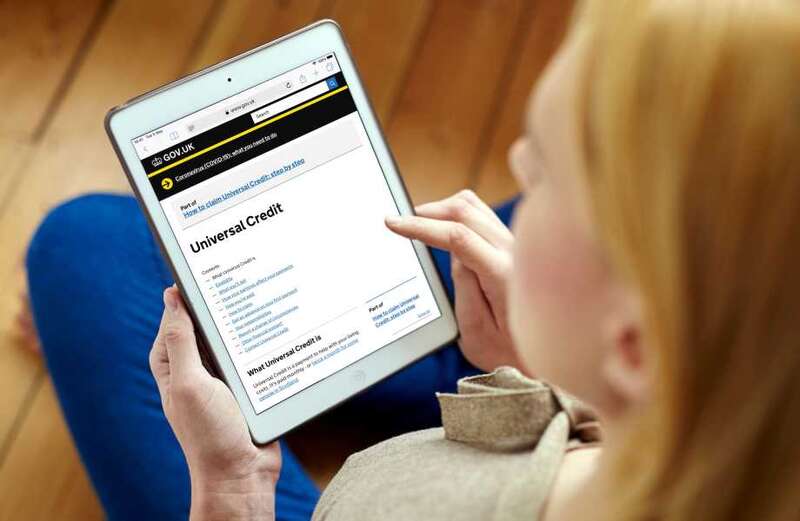MILLIONS of households on benefits are getting extra cash from this Spring - but it's important to know when you're getting paid.
In fact, the two bank holidays on May 6 and May 27 are shaking up payment dates.

Your usual payment date depends on when you first applied and when your application was approved - there is no set day for everyone.
For Universal Credit, for example, most people receive their first payment seven days after the end of their initial assessment period.
Below we explain what you need to know for this month.
 Date millions on Universal Credit and benefits will get a pay rise this year
Date millions on Universal Credit and benefits will get a pay rise this year
Benefit payment dates
If your usual payment date falls on the bank holidays, you'll get the money on the previous working day instead.
That means you won't be left waiting for cash over the long weekend.
In other words, if you're expecting a payment on Monday, May 6, you'll likely get it on Friday, May 3, instead.
And if you're due one on Monday, May 27, you should get paid on Friday, May 24.
As well as Universal Credit, 11 other benefits will also be affected by the bank holidays. They are as follows:
- Attendance allowance
- Carer's allowance
- Child benefit
- Disability living allowance
- Employment and support allowance
- Income support
- Jobseeker's allowance
- Pension credit
- Personal independence payment
- State pension
- Tax credits (such as Working Tax Credit)
Income Support, jobseekers's allowance and pension credit payments usually arrive every two weeks while the rest arrive every four weeks.
The amount you're due should remain the same.
However, don't forget that if you get paid early then you'll have to make the money you get go further as you'll have extra days to wait until your next payment date.
If you don't receive your benefit payment one working day before the bank holiday, contact the DWP directly.
Benefit increase
Millions on benefits face a payment boost delay due to how their welfare cash is paid.
 I'm a benefits expert - five tips to help if you're on Universal Credit
I'm a benefits expert - five tips to help if you're on Universal Credit
Benefit payments rose by 6.7% from April, in line with the consumer price index (CPI) level of inflation for September 2023.
However, it's important to note that while the new rates come into force on April 8, most will not see their payments rise until May.
This is because most benefits are paid monthly or twice monthly in arrears.
For example, if you usually receive your state pension payment on or before the 8th of each month, you won't receive a payment boost until your May payment is due.
Millions on Universal Credit will also have to wait a bit longer to receive the uprating because of how the benefit is assessed.
It means that the date you'll receive the pay boost will depend on when your last assessment period was.
Those whose assessment periods started before April 8 will see the benefits rise in May.
However, those whose assessment period started after this date won't see it until June.
Check our guide for the full list of the new benefit rates for 2024-25.
Earnings threshold change for Universal Credit
The Administrative Earnings Threshold will rise from 15 to 18 hours per week from May 13, affecting 180,000 people on Universal Credit.
It means they will have to step up their search for work or face having their benefits cut.
The AET determines how much support an individual will receive to find work based on their current earnings and hours worked.
If someone earns below the AET, they are placed in the Intensive Work Search Group and required to meet regularly with their work coach.
Right now this affects those working fewer than 15 hours a week and earning less than £743 per month or £1,189 for couples.
Following the change, anyone working fewer than 18 hours a week and earning less than £892 per month or £1,437 for couples will have fresh requirements to meet with DWP officials to find more work.
If you earn the individual AET or more, you do not need to look for more or better-paid work actively.
Additionally, if you're in a couple and your combined earnings are equal to or higher than the couple’s AET, you or your partner do not need to actively look for more or better-paid work.
Do you have a money problem that needs sorting? Get in touch by emailing money-sm@news.co.uk.
Plus, you can join our Sun Money Chats and Tips Facebook group to share your tips and stories

































